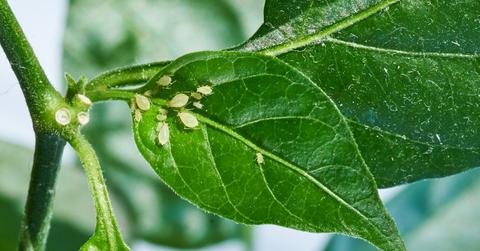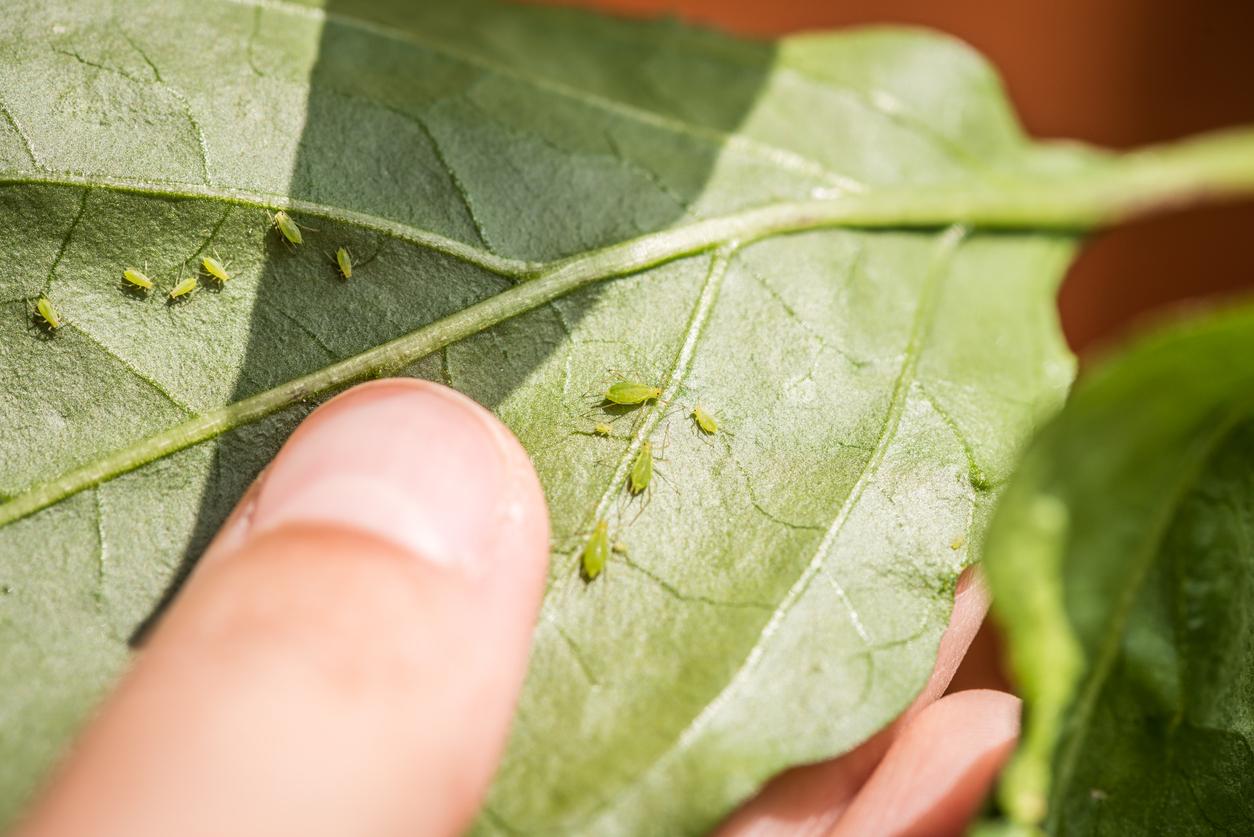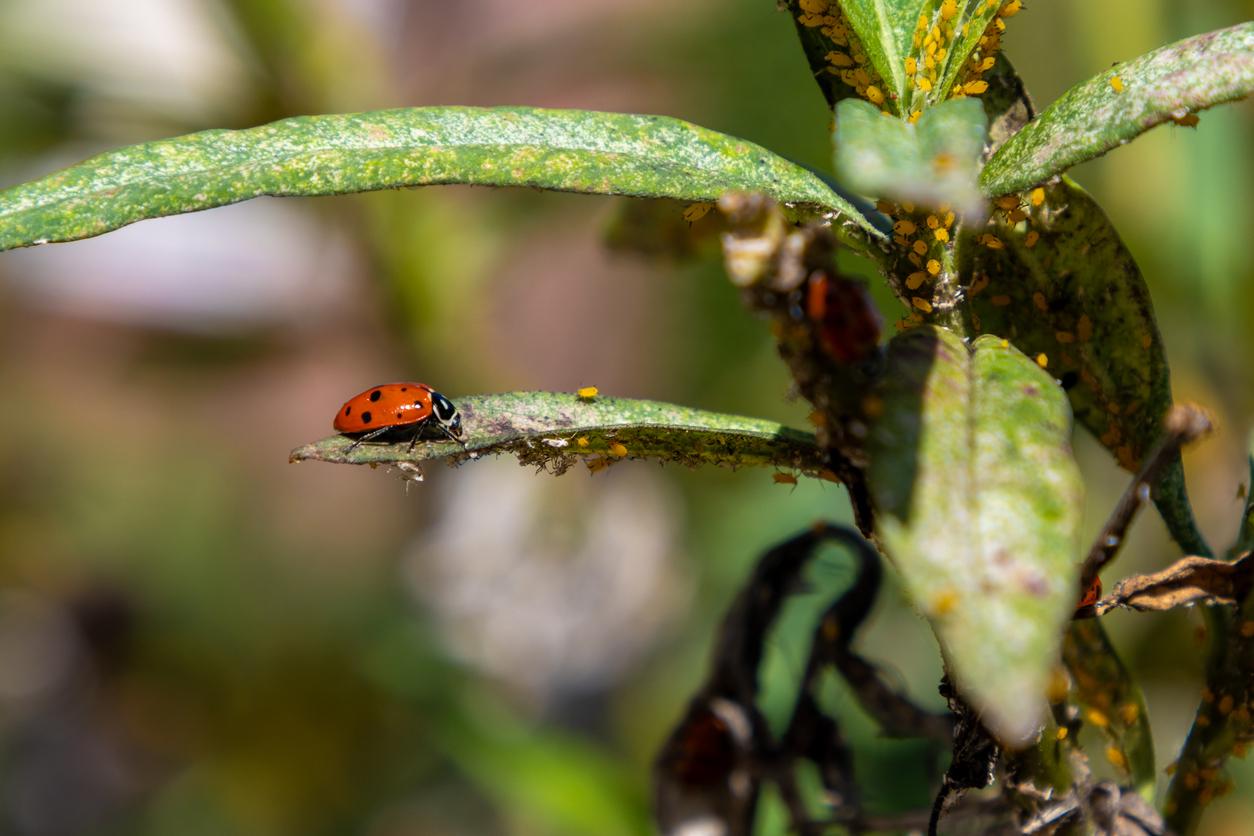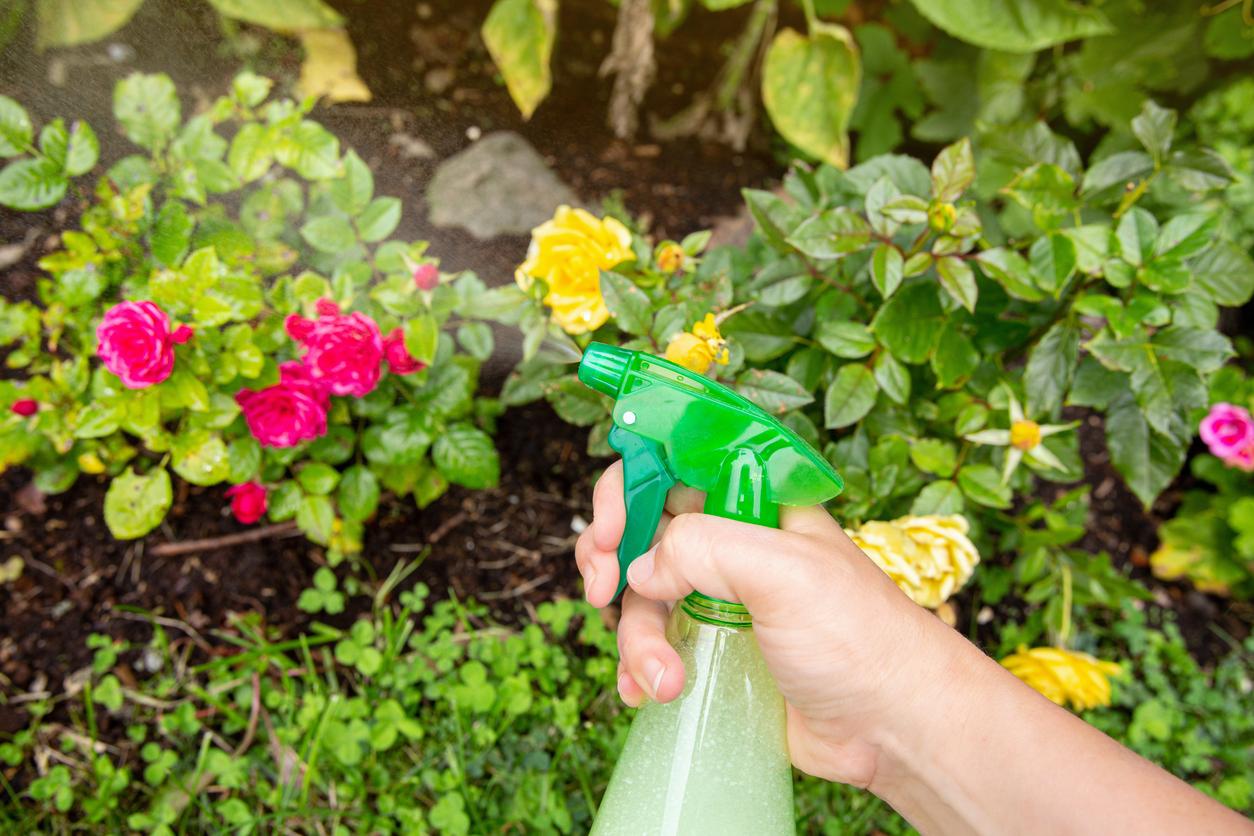How to Get Rid of Aphids Permanently: 3 Simple Methods That Will Get the Job Done ASAP
Excessive feeding from aphids can cause a lot of problems for plants, such as discoloration, leaf curling, stunted growth, and more.
Published April 16 2024, 11:11 a.m. ET

Aphids are small, green insects that suck sap from a variety of plants. These tiny little creatures might seem insignificant, but if they get out of hand, they can cause some serious damage to your plants.
Your plant could be suffering due to aphids if it has yellow or twisted leaves and dead shoots. To learn three different methods for how to get rid of aphids permanently, keep reading.
Remove aphids from plants by hand.

If you see a few aphids on your plant and want to get ahead of the problem, it’s easiest to remove them by hand. Managing them without the use of chemicals is typically achievable and effective, according to North Carolina State University.
To remove them, simply put on a pair of gloves, grab an aphid, and squish it between your fingers. For a similar effect, you could also knock the aphids off the plant with a spray of water from a hose or gardening can. Be careful when choosing the latter, as some leaves are more delicate than others and could be damaged if the water pressure is too high, according to Homes and Gardens.
Opting for natural removal methods, rather than using harsh pesticides, is better for the environment and your wallet.
Use nature to your advantage.

Just like almost every other living thing on the planet, aphids have a few natural predators. Their top enemies are ladybugs, green lacewings, parasitic wasps, rove beetles, and even birds, according to the Royal Horticultural Society (RHS). By deploying one of these animals, you’re ensuring that your plants remain aphid-free!
Some of these insects, such as ladybugs and rove beetles, can be ordered online. However, if you don’t want to order random bugs through the mail, you can always try other ways to use nature to your advantage.
Different types of plants have the power to draw the attention of or repel certain animals, according to Garden Design. To repel aphids, grow things like onion, garlic, or chives. To attract some of the insect’s predators, try planting yarrow, clover, or mint. You can also lure the aphids away from your more valuable plants by growing zinnias or cosmos
Try homemade sprays or neem oil.

If the previous methods didn’t work or you found them too time-consuming, you can always try using neem oil or making a homemade pesticide.
When using neem oil, be sure to dilute it beforehand. To make a solution to spray on your plants, mix 1 quart of water, 1/3 teaspoon of mild soap, and 1 teaspoon of neem oil. For the best results, reapply the mixture often.
You can also make a strong homemade pesticide with water and rubbing alcohol, according to The Spruce. All you have to do is combine the two ingredients — the ratio should be about 20:1. The alcohol must be extremely diluted, as too much could damage the plants.
If all of these methods have failed, then a chemical pesticide might be necessary. This should always be a last resort, though — this type of intervention isn’t great for the environment and can cause more harm than good.